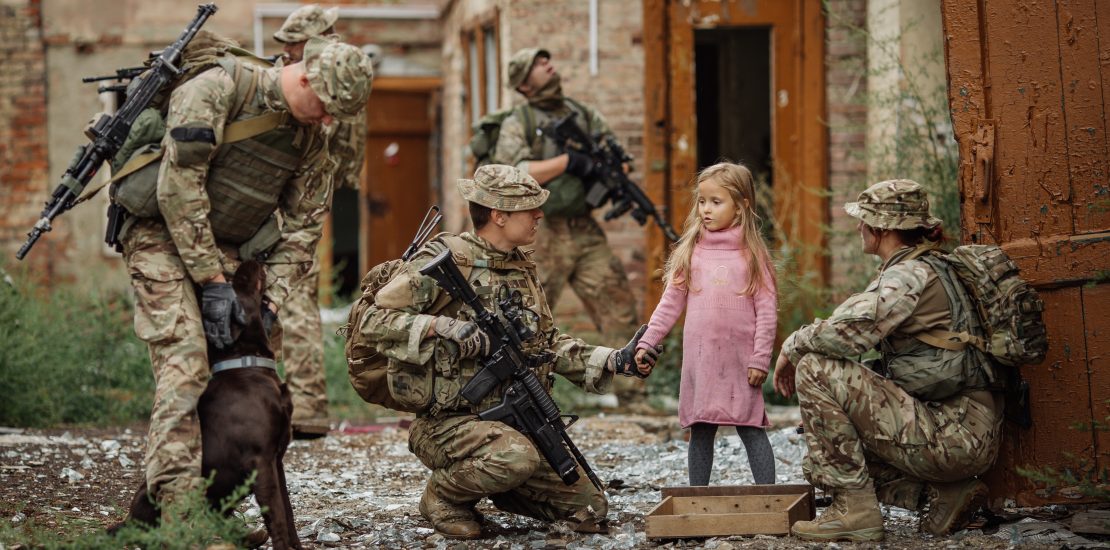Krulak’s Law
- December 16, 2019
- Posted by: Philip Struble
- Category: Uncategorized

“In many cases, the individual Marine will be the most conspicuous symbol of American foreign policy and will potentially influence not only the immediate tactical situation but the operational and strategic levels as well.”
US Army General Charles Krulak
General Charles Krulak
United States Marine Corps General Charles Krulak developed the idea of the ‘Strategic Corporal,’ sometimes referred to as Krulak’s Law, back in the 1990s. Krulak identified that in a dynamic, complex battlefield, troops could be engaged in war-fighting in one area while, three blocks away, their colleagues could be rebuilding a local school.
These diverse challenges require decentralized execution of the mission, meaning that the individual Marine becomes the most conspicuous symbol of American foreign policy. He or she will directly impact the immediate tactical situation in front of them but will also influence the operational and strategic levels much more than would have been the case in more rigid environments.
Business Application
This is the situation that many businesses now find themselves in, where the front-line employee is the face and voice of the organization, much more so than the corporate center. More and more news stories are about the positive (or negative) actions of a front-line employee which then, sometimes immediately, directly impacts the public attitude toward the business.
Think of the employee who changes the customer’s tire or the rude waitress and the influence they had on the company’s reputation.
To manage in this business culture requires a high quality of leadership and decision-making at the front line and a great deal of autonomy at the lowest levels of the organization.
The military has considerable resources in place to train and prepare troops for this kind of responsibility.
But what can a small business or entrepreneur do?
Application
Organizations have to decentralize to be successful, but this poses challenges and can create additional risks to the business. These risks can be reduced significantly by empowering, trusting, and educating front-line employees.
Front-line employees will have the majority of client-facing time, so they must be considered in al communications strategies and be included in all messaging efforts.
Modern organizations have to be decentralized to be successful: a rigid, top-down hierarchy with a small group of centralized decision-makers issuing rigid plans won’t work in today’s high-speed world.
Instead, an organization – whether it’s an airline, a fast-food chain or bank – has to delegate significant autonomy to front-line employees to ensure that the organization is nimble and flexible enough to succeed.
Here are three key elements to making a decentralized organization work.
- Delegate authority in addition to responsibility. The frontline employees dealing with your customers need to be able to understand risk, manage risk, and make appropriate decisions knowing that they have the responsibility and authority to do so.
- Make risk management a two-way street. Although any eventual crisis will hit the organization at the top, they need to be reminded that the front-line is the most likely where corrective action will be most effective. To make this happen, however, it is important to ensure that the front line employees understand the mission and values of the organization, understand the concepts of ‘doing the right thing,‘ and how their actions impact the organization.
- Communicate the mission and intent. Finally, the most important thing in a decentralized organization is to ensure that everyone understands both the mission and the intent of the organization. The mission will tell them what it is you are trying to achieve but the intent is key to helping them determine the appropriate way to get there.
The Bible
Krulak’s Law says that the people closest to the action of the business have more ability to influence the business’s success than do C-suite executives.
Consider the ministry of Jesus Christ. Who did he minister to, live with, and care for?
Although Jesus came for all, He came as a humble, lowly servant of the poor working class. He did not come as a general, a president, or a political leader.
He knew that the closer you get to the front of the action, the more power you have to influence. He lived with and walked among those who labored to live. He knew how to make change happen.
The same is true for all our businesses. Know your front line people, invest and teach them, and then lead them for success.
